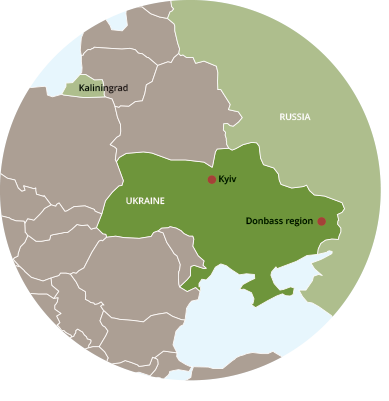Stories of tax evasion and power abuse uncovered through the Panama Papers in spring 2016 has left few in doubt of the value of investigative journalism as a tool to hold those in power to account. In the Arab world, a selected group of investigative journalists supported by the IMS-founded network Arab Reporters for Investigative Journalism (ARIJ), dove into the historic data leak to expose the wrongdoings of implicated leaders in the region. Their participation in the Panama Papers exposé is a testament to the work of ARIJ, which has worked tirelessly to ensure the existence of investigative journalism in a region over the last decade with IMS support. The mere presence of investigative journalists in a region with little space for public accountability is a significant achievement in itself.
Since 2005, more than 1600 journalists from nine Middle Eastern countries have gone through training in various investigative journalism techniques, data analysis tools and media platforms. This has led to a massive leap in the quality of stories and collaborations with international media such as the Guardian and BBC. In 2015, Al Jazeera English purchased a documentary produced under the auspices of ARIJ on torture in jails in Tunisia.
While developments for ARIJ have largely been positive when it comes to the production of high-quality content, progress for the Association of Moroccan Investigative Journalists (AMJI) was hampered by a crackdown on the organisation by the authorities, but AMJI did manage to support the production of seven investigative stories before putting its activities and journalistic support on hold.
Despite a deeply challenging environment, three Iraqi universities in spring 2016 inaugurated the country’s first university-based investigative journalism units with specialised curricula tailored to the difficult Iraqi media context, working towards a new generation of critical thinkers. The establishment of the units is a major milestone where IMS worked for months with the Iraqi Ministry of Education to secure teaching registration for the IMS-supported Network of Iraqi Reporters for Investigative Journalism, which will be doing much of the teaching.
In an increasingly shrinking space for independent media in Russia, 23 national investigations in northwest Russia were carried out with support from SCOOP Russia. The IMS cofounded investigative journalism network SCOOP Russia contributed to supporting the pockets of ethical, independent and critical journalism that still exist. One investigation by journalist Roman Romanovskiy uncovered untreated water at a water treatment facility in Kaliningrad that had been reported as clean. This led to the authorities examining this and other wastewater facilities, which were subsequently closed for churning out untreated water.
According to Nikita Kuzmin, SCOOP Russia coordinator: “I have been able to combine my work as an investigator with new techniques and knowledge because of SCOOP Russia. I now pass on this knowledge to my staff in my work as an editor.”
One of the real wins of the SCOOP Russia network has been cross border investigations carried out between Russian and Ukrainian SCOOP affiliated journalists despite the ongoing hostilities between the two countries as well as enabling journalists to pass on their new-found investigative skills to colleagues.
STORIES OF CHANGE
Joint Russia/Ukraine investigation in spite of war

In Ukraine reporter Tetiana Rykhtyn noticed how Russian-speaking refugees, who had initially fled to Russia from the contested Donbass region, began returning to Kyiv citing lack of aid and hardship.
In the Russian enclave of Kaliningrad freelance reporter Anastasia Drozdova was on to a story on how Russian authorities failed to keep its promises by not fully assisting the many people fleeing war in Donbas.
“In Russia very few are recognized as refugees. Most end up categorised as ‘compatriots’, lost when the Soviet Union fell apart – now repatriated to their motherland. Therefore, they are not entitled to financial assistance and still have to apply for citizenship in Russia in order to be legalized and hold a job,” Anastasia Drozdova explains.
Fast forward to November 2015. The two reporters began a joint cross border investigation through the IMS-cofounded SCOOP network, helping each other with interviews and identifying sources, while covering their respective angles with advice and technical input from an experienced investigative reporter appointed through the SCOOP mentorship programme.
“Being introduced to a colleague in Ukraine that I can trust simply made all the difference and brought my reporting to a different level,” Anastasia says.
With help from Anastasia, Tetiana met with refugees returning from Russia after fleeing Donbass eastward. The refugees are caught between a rock and a hard place.
“People are afraid of Russia, because they have criticised conditions for refugees there. But they also fear Ukraine and being interrogated by the Ukrainian Security Services, who view refugees as potential separatists or spies,” Tetiana explains.
Fearing official retribution, the reporters did not share any information about their co-operation whilst investigating. Now, both are keen to expand the investigation.
“I would like to follow the money,” says Anastasia. “Big federal funds are allocated to support the refugees, but very few of them receive support. Where does the money go?”


